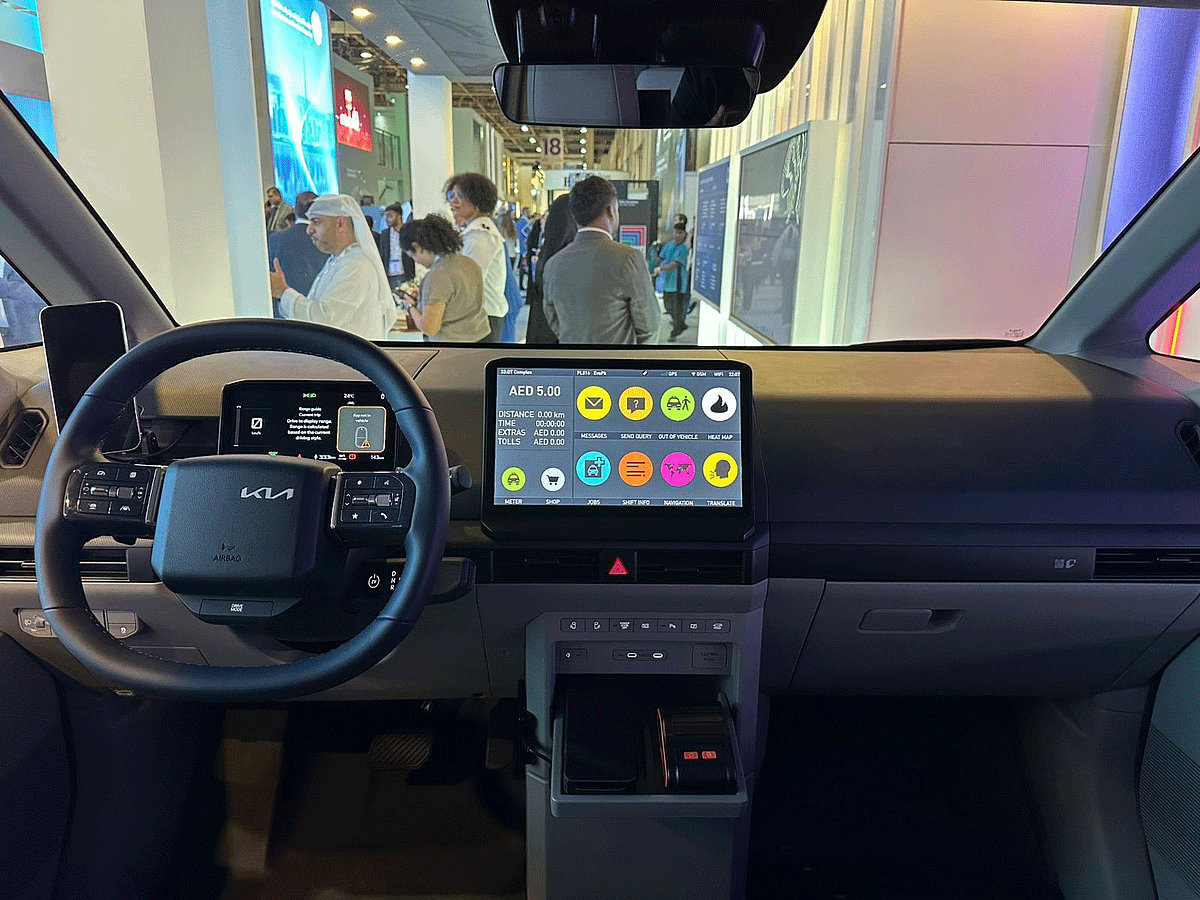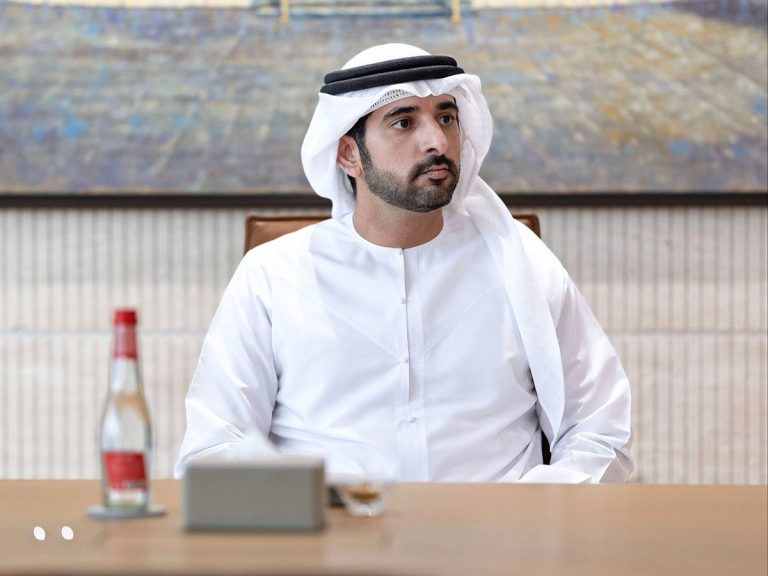Dubai Launches AI-Enhanced Electric Taxis for Passengers
Dubai is taking significant strides in enhancing its transportation system with the introduction of fully electric taxis that feature advanced artificial intelligence capabilities. These innovative vehicles aim to bridge communication gaps between drivers and passengers, making the taxi experience more inclusive and efficient.
Electric Fleet with AI Translation
The Dubai Taxi Company has launched a fleet of electric taxis equipped with built-in AI translation technology. This feature allows passengers to converse with drivers in their preferred language, facilitating smoother communication regardless of nationality. Hisham Airan, Director of Operations at Dubai Taxi Company, emphasized that the AI tool detects spoken language and translates it in real time for the driver.
Enhanced Taxi Experience
The new PV5 electric taxis are the result of a collaboration between Dubai Taxi and Kia, focusing on user-friendly design and functionality. The vehicles were co-developed with input from Dubai Taxi engineers, ensuring that aspects such as seating, luggage space, and accessibility were prioritized from the outset. The taxis now feature a smart meter and infotainment system that consolidates trip information, fare visibility, and digital payment options, streamlining the overall experience for both drivers and passengers.
Safety and Monitoring Features
Safety is a top priority with the new electric taxis. Each vehicle is equipped with four in-car cameras that monitor driving behavior, passenger safety, and driver fatigue. The fatigue detection system ensures that drivers remain alert and adhere to traffic regulations, thereby reducing the risk of accidents. This real-time monitoring is part of a broader effort to enhance safety standards within the city’s transportation network.
Commitment to Sustainability
The design of the PV5 taxis reflects a commitment to sustainability, utilizing recycled materials and modular layouts to minimize environmental impact. This initiative aligns with Dubai Taxi Company’s broader strategy for efficient and sustainable transportation. The introduction of electric and hybrid vehicles is part of the emirate’s Green Mobility Strategy 2030, which aims for a fully zero-emission public transport fleet by the end of the decade. The Roads and Transport Authority has already pledged to transition all taxis to hybrid, electric, or hydrogen models by 2027.
Conclusion
Dubai’s new electric taxis represent a significant advancement in the city’s transportation landscape, combining AI technology with a commitment to sustainability. As the emirate works towards a greener future, these innovations not only enhance the passenger experience but also reflect Dubai’s ambition to lead in smart and inclusive mobility solutions.
FAQs
What languages can the AI translation feature support?
The AI translation feature is designed to support multiple languages, allowing passengers to communicate in their preferred language during the ride.
How does the taxi monitor driver safety?
Each taxi is equipped with four cameras that monitor driving behavior and detect signs of driver fatigue, ensuring compliance with traffic rules and enhancing passenger safety.
What is the timeline for the transition to electric taxis in Dubai?
Dubai aims to have a fully zero-emission public transport fleet by 2030, with a commitment to convert all taxis to hybrid, electric, or hydrogen models by 2027.
The introduction of AI-enhanced electric taxis in Dubai is part of a broader trend in urban transportation, where cities worldwide are increasingly adopting smart technologies to improve mobility. This shift is driven by the need for more efficient, environmentally friendly, and user-centric transportation solutions. By integrating AI and electric vehicles, Dubai is positioning itself as a leader in the smart city movement, which emphasizes the use of technology to enhance the quality of urban life.
Moreover, the collaboration between the Dubai Taxi Company and Kia highlights the importance of partnerships in achieving innovative transportation solutions. Such collaborations can leverage the strengths of both public and private sectors, fostering advancements that might not be possible independently. As cities face growing challenges related to congestion and pollution, initiatives like these could serve as models for other urban areas looking to modernize their transport systems while prioritizing sustainability and inclusivity.
As Dubai continues to develop its transportation infrastructure, the success of these electric taxis may influence future policies and investments in the region. The ongoing commitment to integrating advanced technologies and sustainable practices will likely play a crucial role in shaping the emirate’s transportation landscape for years to come.
Also Read:
Dubai RTA Launches Monitoring System for Delivery Riders







